5 Home Remedies for Your Dog’s Itchy Skin
Managing itchiness in dogs can be challenging. While an occasional scratch is normal, dogs that are constantly scratching and licking can suffer more serious problems. Persistent itchiness can lead to painful skin infections and sores, causing discomfort for both the dog and its owner.
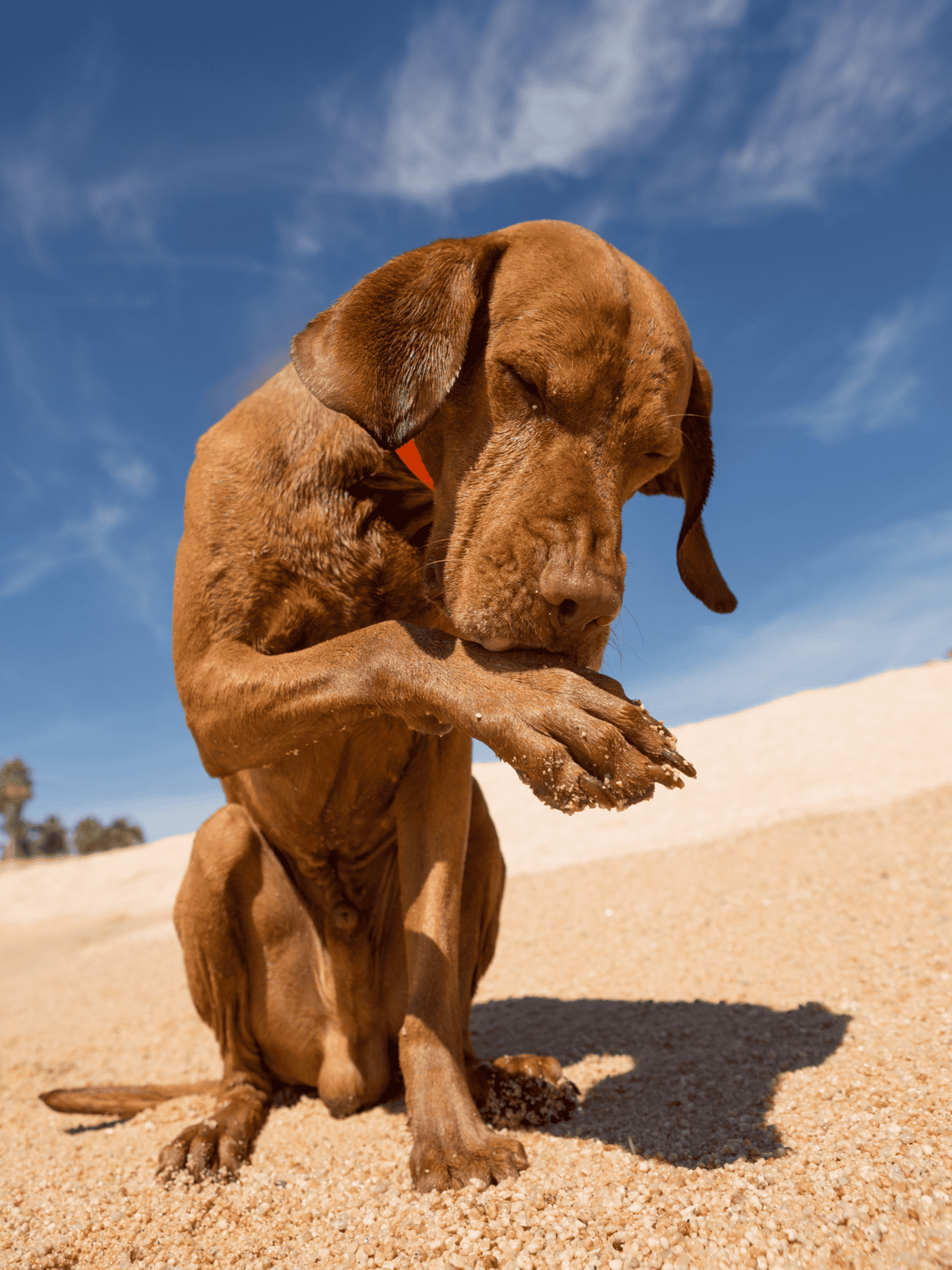
There are several reasons why a dog might be itchy, including allergies to food or environmental factors. Parasites like fleas, ticks, and mites can also be a cause. Some dogs naturally have dry, flaky skin, which may result in mild itchiness. At-home treatments can provide relief, but if the issue persists, a visit to the veterinarian is necessary to properly address the problem.
Understanding Your Dog’s Itchy Skin
Dogs often experience itchy skin because of various factors such as allergies, parasites, or infections. Recognizing the signs early can help in getting the right treatment.
Common Causes of Skin Itchiness

Dogs can have itchy skin due to allergies from food, pollen, or certain chemicals. Parasites like fleas, ticks, and mites are also common culprits. Infections, either bacterial or fungal, often cause irritation. Another cause could be dry skin due to environmental factors like low humidity or excessive bathing. It’s important to identify the exact cause to treat it effectively.
Symptoms and Diagnosis
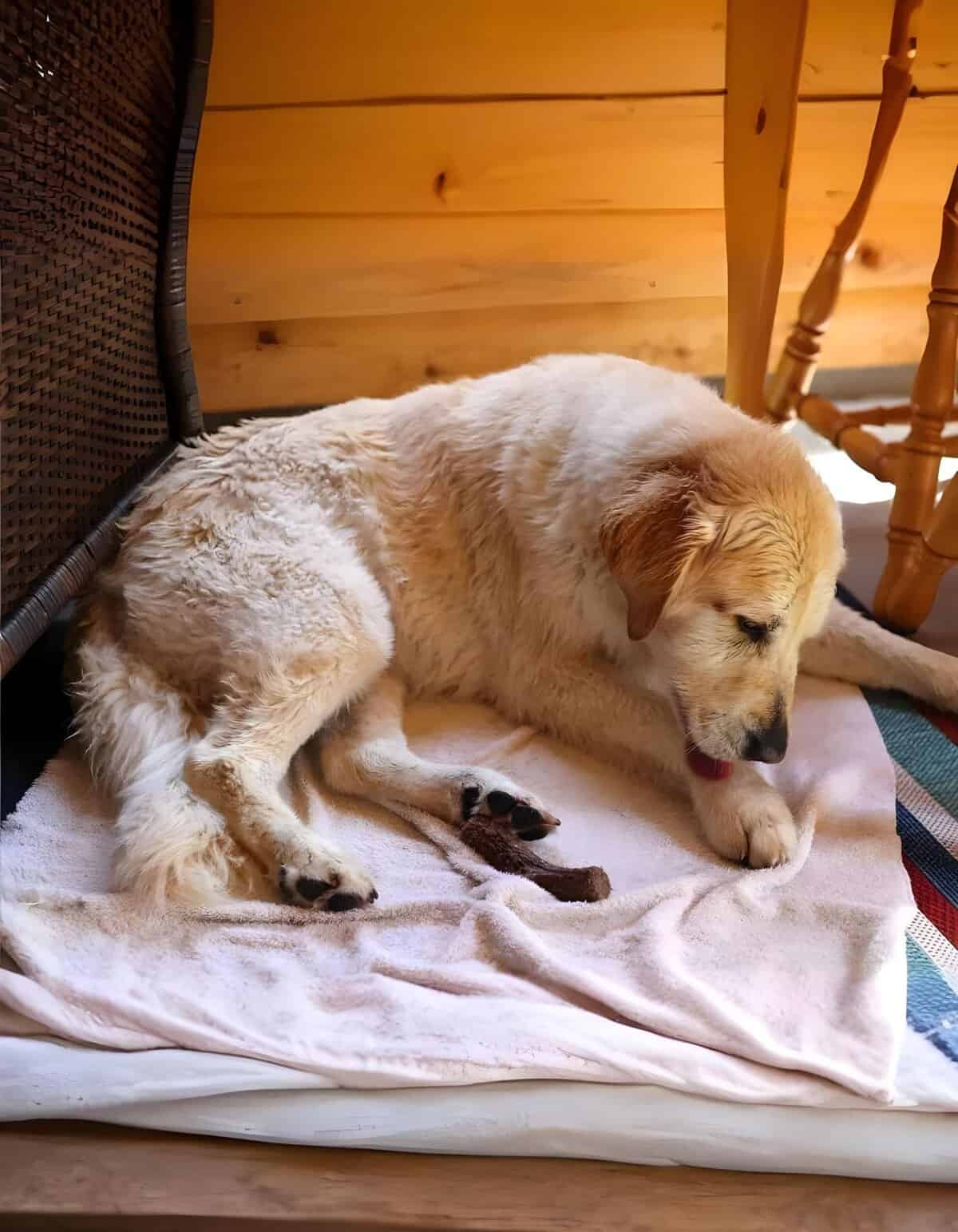
Recognizing symptoms such as constant scratching, licking, or biting is crucial. You might also notice red or inflamed areas, hair loss, or scabs. To diagnose, a vet usually performs a physical exam and may also do skin scrapings or allergy tests. Getting a proper diagnosis ensures the right treatment plan for your dog.
Daily Grooming Techniques
Keeping your dog’s skin healthy involves regular brushing and proper bathing routines. These techniques help reduce itchiness and other skin issues.
Brushing for Healthy Skin
Regular brushing removes dead hair and spreads natural oils. This keeps the skin moisturised and lessens irritation. Brushing also helps to spot any pests or skin problems early on.
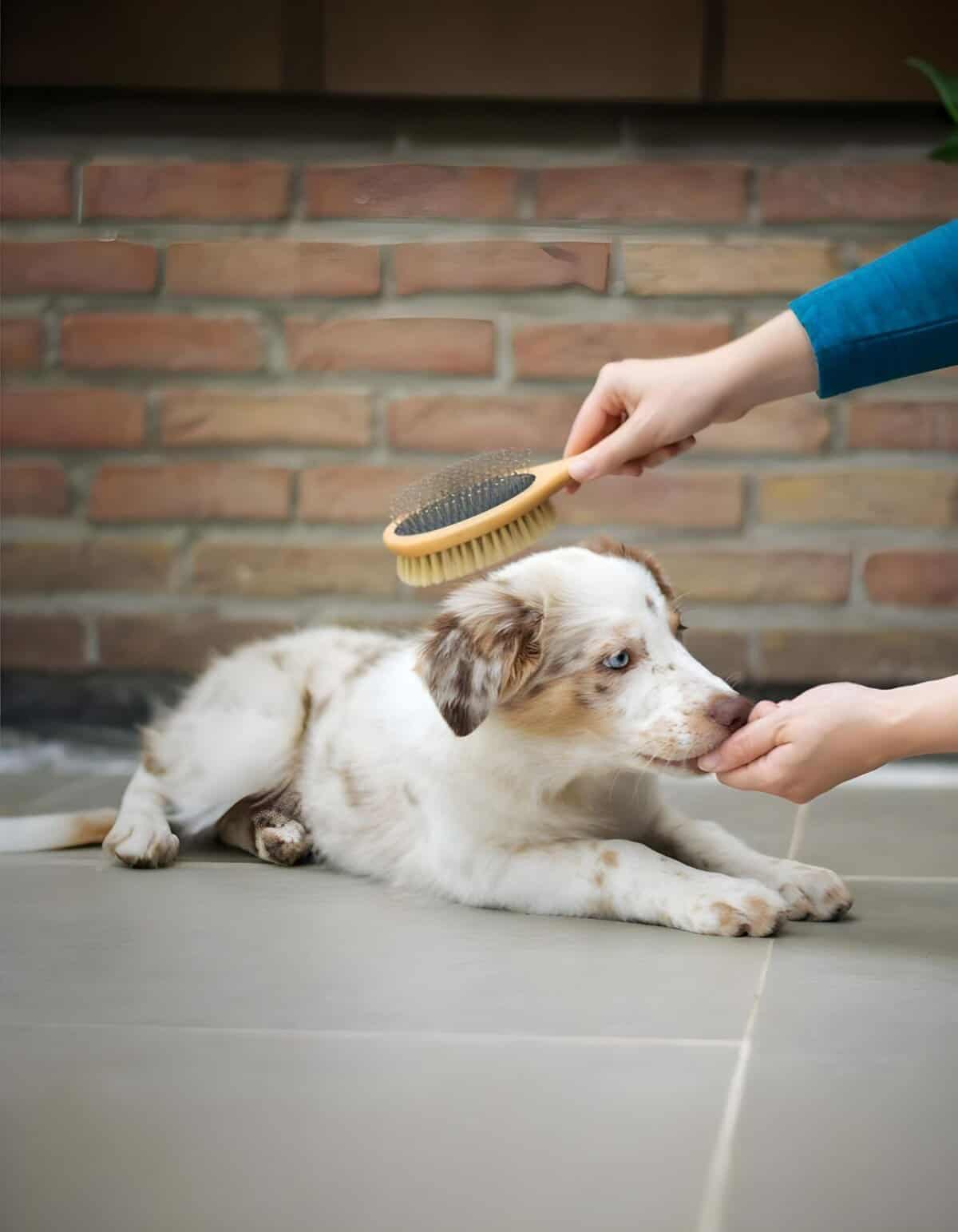
For short-haired dogs, brush once a week with a bristle brush. For long-haired dogs, daily brushing with a slicker brush or comb is best. During shedding seasons, use an undercoat rake.
Remember to brush gently, especially near sensitive areas. Consistent and gentle brushing can make grooming enjoyable for your dog.
Bathing Practices
Bathing helps clean dirt and allergens from your dog’s skin. Use a shampoo that’s made for dogs to avoid irritation.
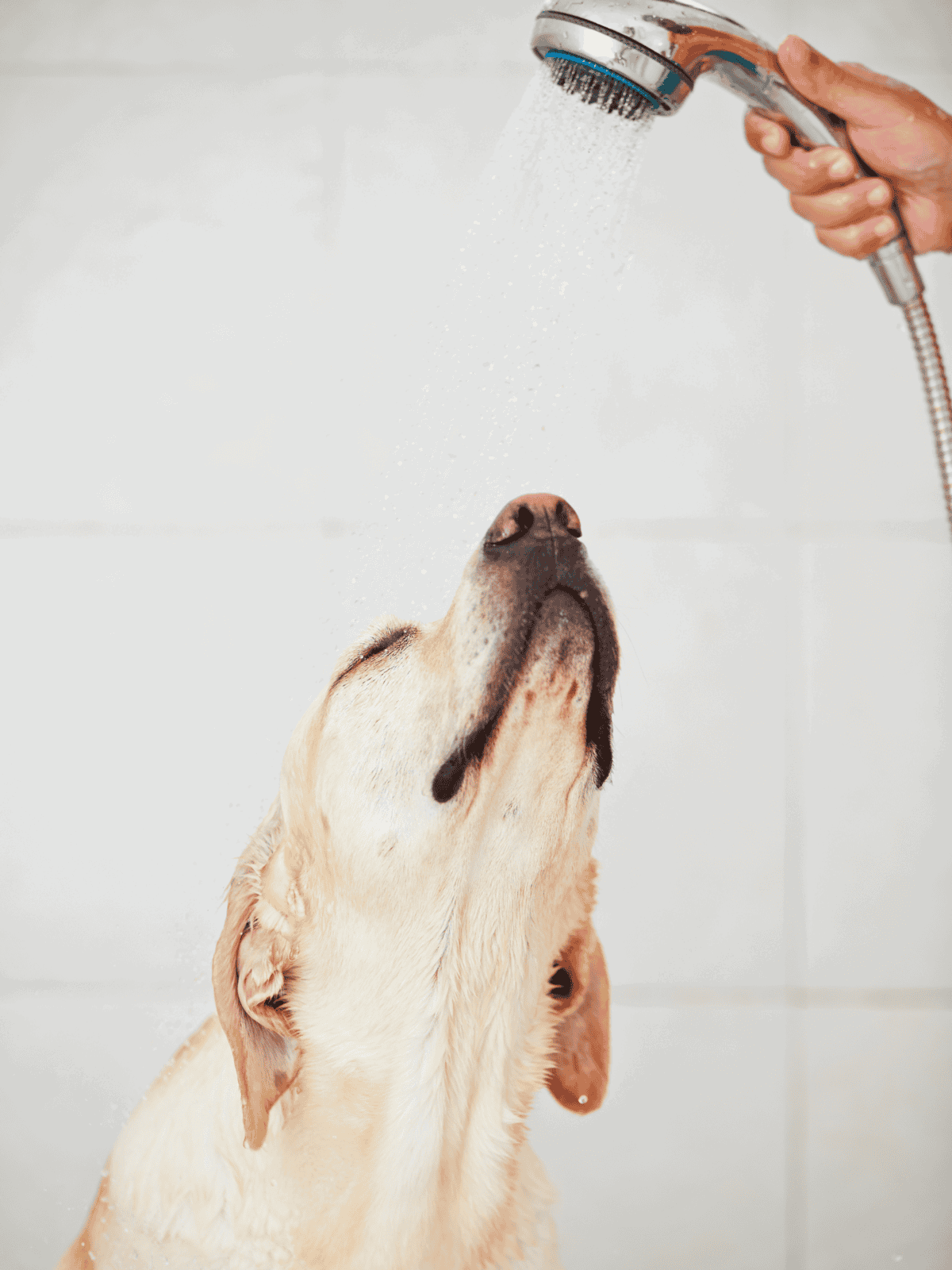
For dogs with itchy skin, an oatmeal shampoo can be soothing. Bathe your dog once a month to keep their skin clean without drying it out. After bathing, dry the dog well to prevent moisture-related skin issues.
Steps for a Good Bath:
- Wet the dog thoroughly.
- Apply shampoo and massage into the coat.
- Rinse well to remove all shampoo.
- Dry completely with a towel or dryer on a low setting.
Avoid over-bathing as it can strip the skin’s natural oils. Proper drying is key to preventing fungal and bacterial infections.
Enjoying this read?
We publish this content for free to generate interest in our Premium members' area. By subscribing, you can ask the writer any questions related to pet care and this article, get access to 100+ Premium Pet Care Guides and go Ad-Free with DogFix Premium for $2.99.
Home Remedies for Your Dog’s Itchy Skin
Dogs with itchy skin can find comfort through easy remedies at home. Cool baths and soothing washes help calm the itch, while moisturizing treatments can prevent dryness. A proper diet can also help benefit your dog by strengthening its skin barrier and preventing further instances of itchy skin.
1. Flea and Tick Control
Many dogs visit the vet because of itchy skin caused by parasites. Fleas can trigger allergic reactions in some dogs, making their skin itch even more after a bite.
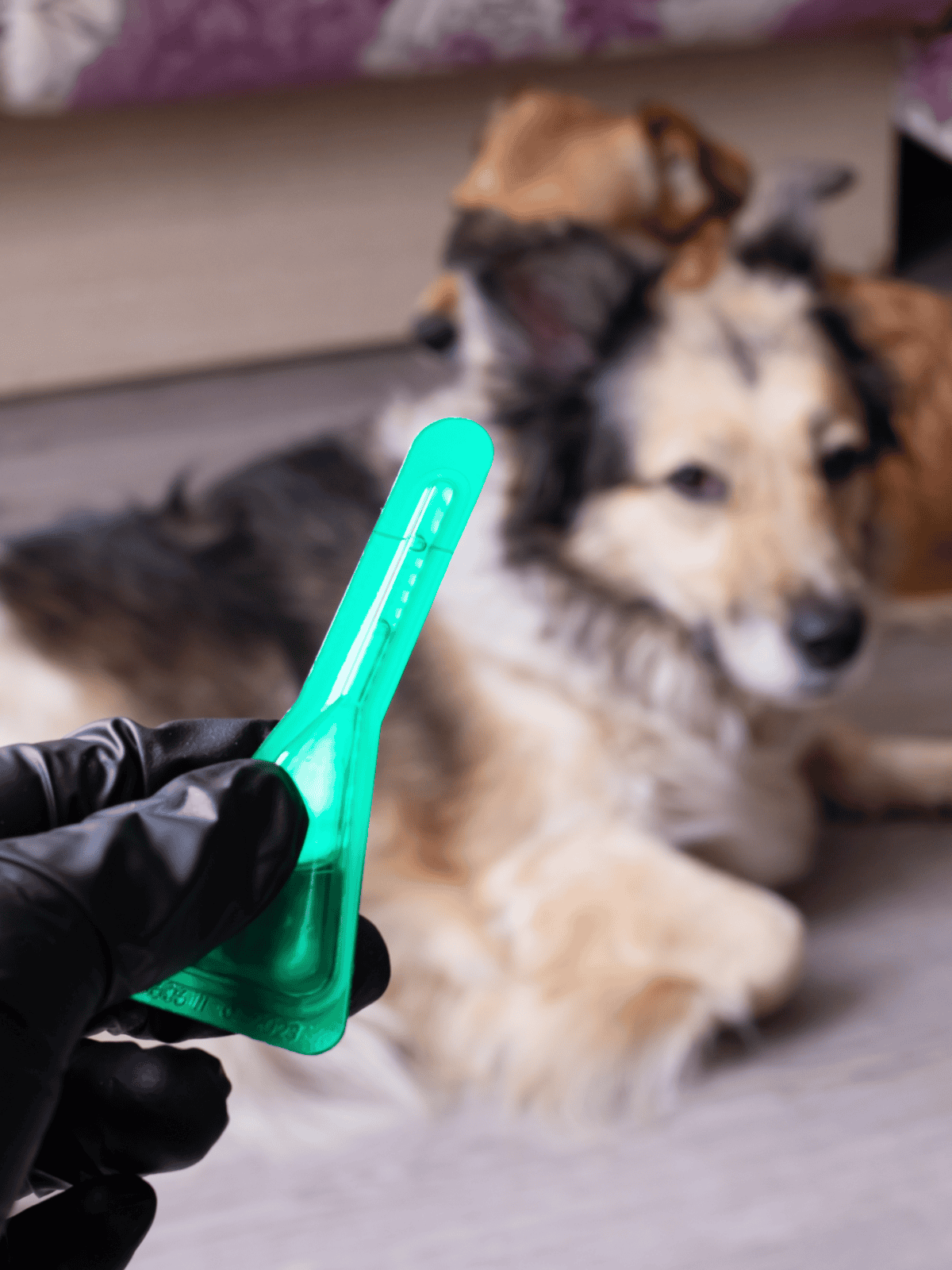
For dogs with itchy skin, it’s crucial to ensure they and their furry housemates stay up to date on flea and tick preventatives. Grooming alone isn’t enough; effective treatments are necessary.
Consult a veterinarian to choose the best prevention method for your dog. Effective flea and tick control requires consistent and appropriate use of preventatives.
2. Fish Oil
Fish oil is a top source of omega-3 and omega-6 fatty acids, beneficial for skin health and reducing inflammation in certain canine skin conditions. While dog food usually has omega-6 like linoleic acid and arachidonic acid, it might lack omega-3s such as eicosapentaenoic acid (EPA) and docosahexaenoic acid (DHA).
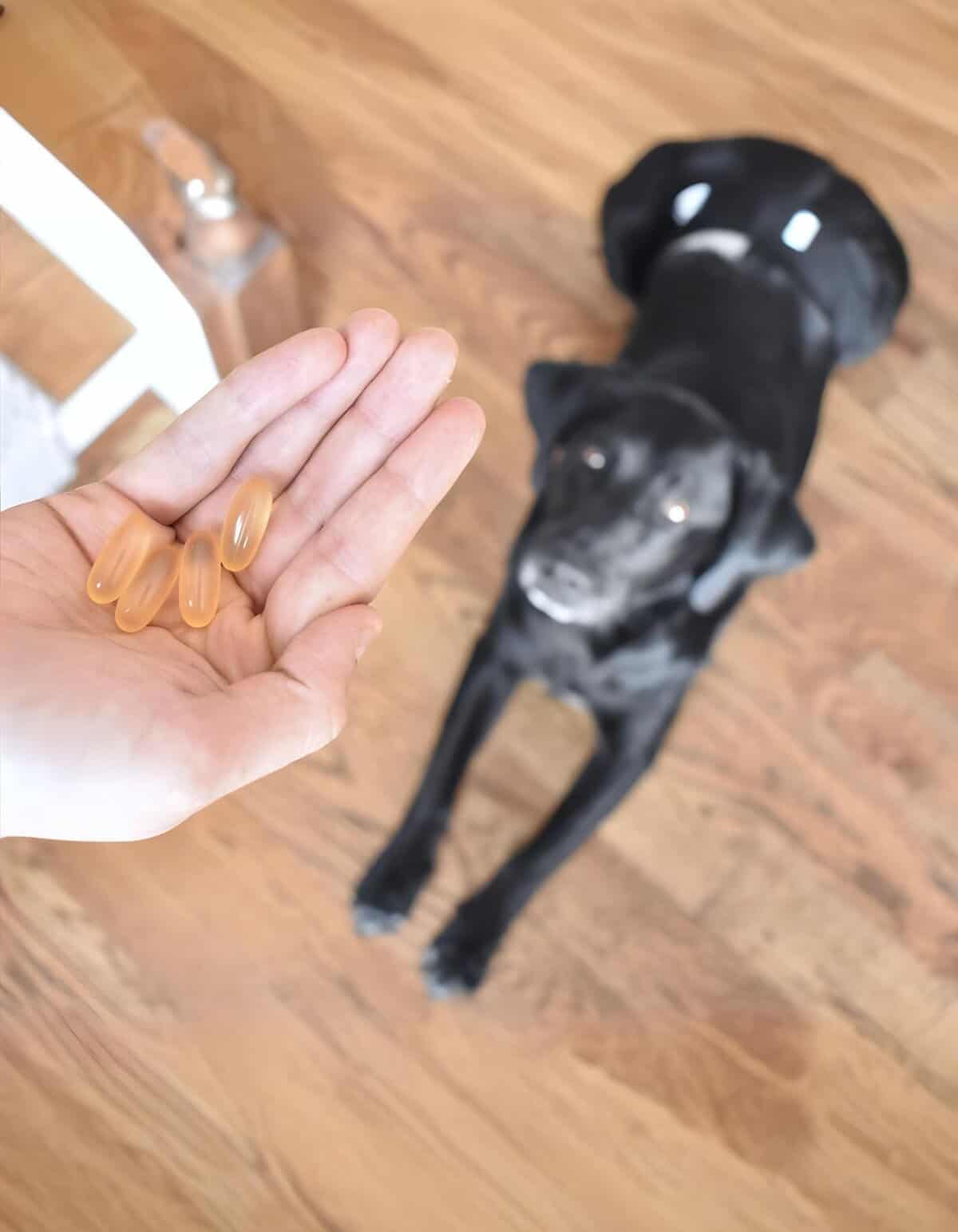
Veterinarians usually suggest fish oil made from anchovies or sardines. Farmed salmon oils are considered low quality, and other sources might be less sustainable. If capsules are hard to administer, many fish oil products can be mixed with the dog’s food.
It’s important to be cautious with high doses, especially for pets with sensitive stomachs, as gastrointestinal issues and pancreatitis can be a risk.
3. Oatmeal Shampoo or Medicated Shampoo
Oatmeal is known for its antioxidant and anti-inflammatory properties that benefit both humans and animals. Topically, oatmeal can enhance the skin barrier, provide moisture, and might even offer UV protection and antifungal effects. Colloidal oatmeal, made by finely grinding oats and boiling them, is especially beneficial.
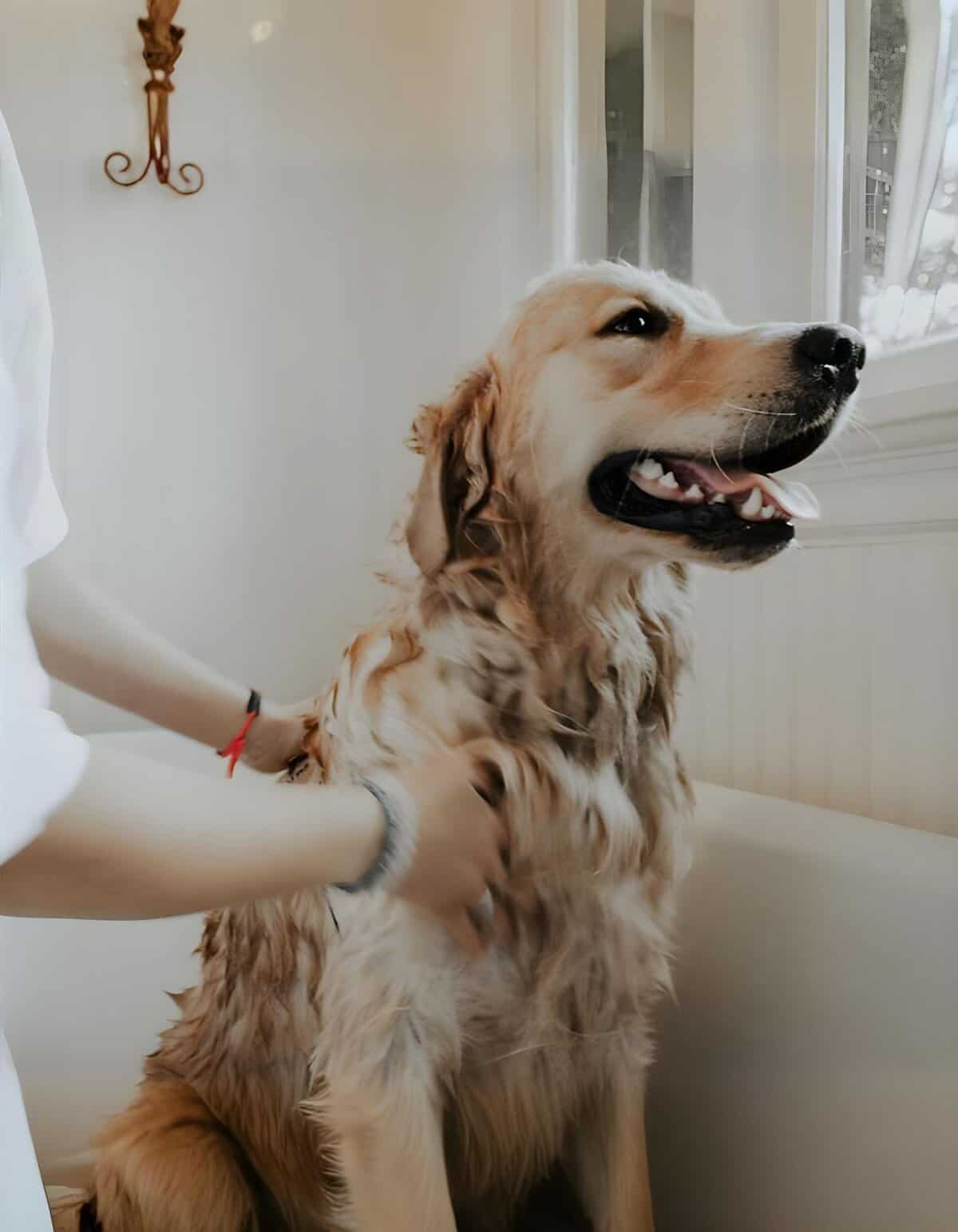
Using oatmeal shampoos designed for dogs is a popular home remedy for itchy skin. Human products may not be suitable, as they can cause irritation. In some cases, veterinarians may suggest using a medicated shampoo for specific skin issues. Always follow professional advice to determine the right product for your pet’s needs.
4. Non-Shampoo Topicals
For dogs that are tough to bathe regularly, there are useful products to maintain skin health. A mousse can help sustain the skin’s barrier without much fuss and can be applied all over the body or just on specific areas like the armpits and lower belly.

Veterinary dermatologists often suggest spot-on treatments such as Dermoscent®. These treatments keep the skin hydrated and less flaky while preventing bacterial infections.
Dogs with hot spots could benefit from a topical spray like Vetericyn® Plus. Besides any medication from the vet, this spray can ease itchiness and help the healing process.
5. Special Diet
Proper nutrition is key to maintaining healthy skin in pets. Their food should be well-rounded and adhere to the guidelines set by the Association of American Feed Control Officials (AAFCO). Missing out on essential vitamins and nutrients can cause skin issues.
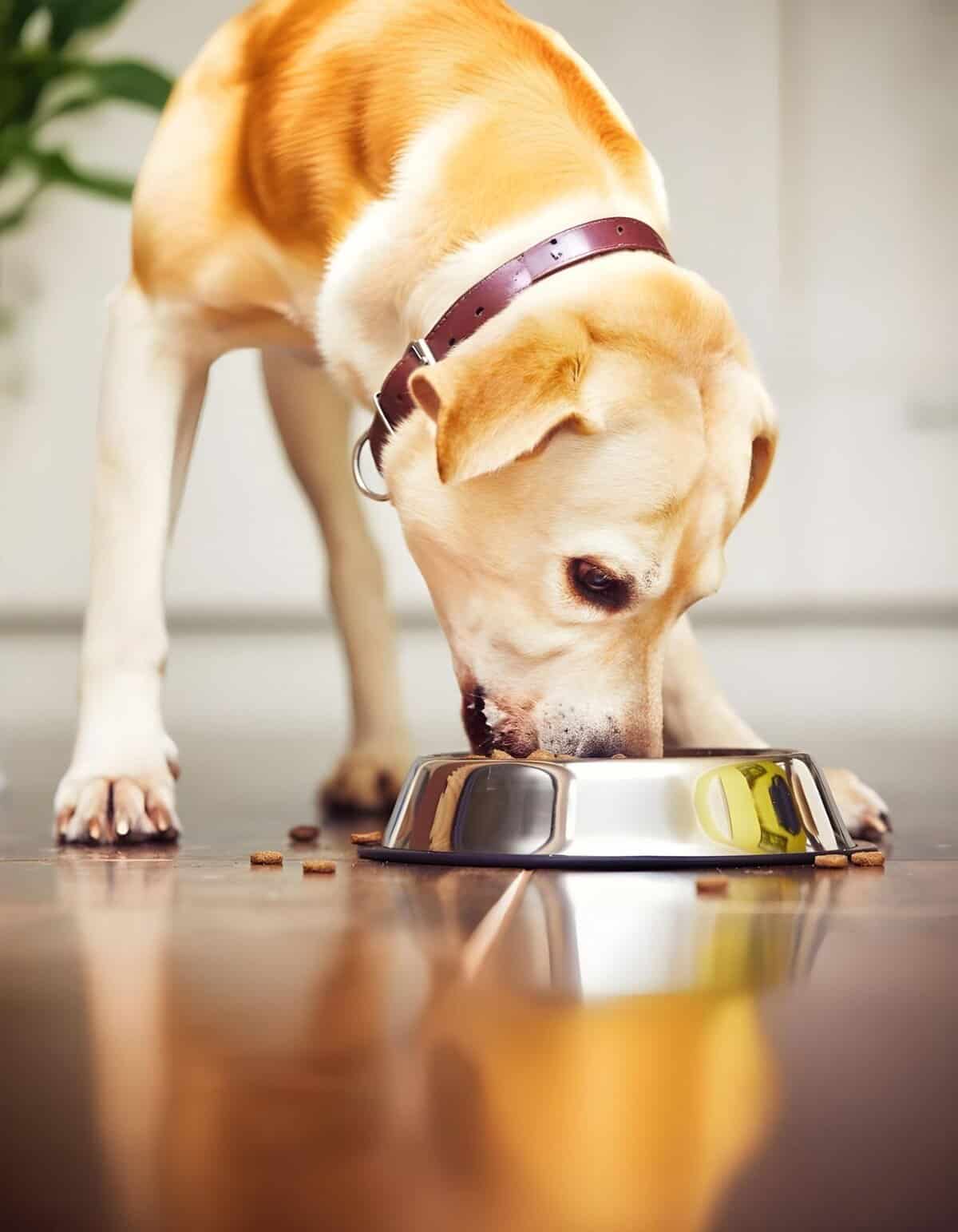
For dogs on a balanced diet but still needing extra care, consider food designed for sensitive skin and stomachs. These often contain higher levels of omega-3 fatty acids and antioxidants, which can help improve skin condition.
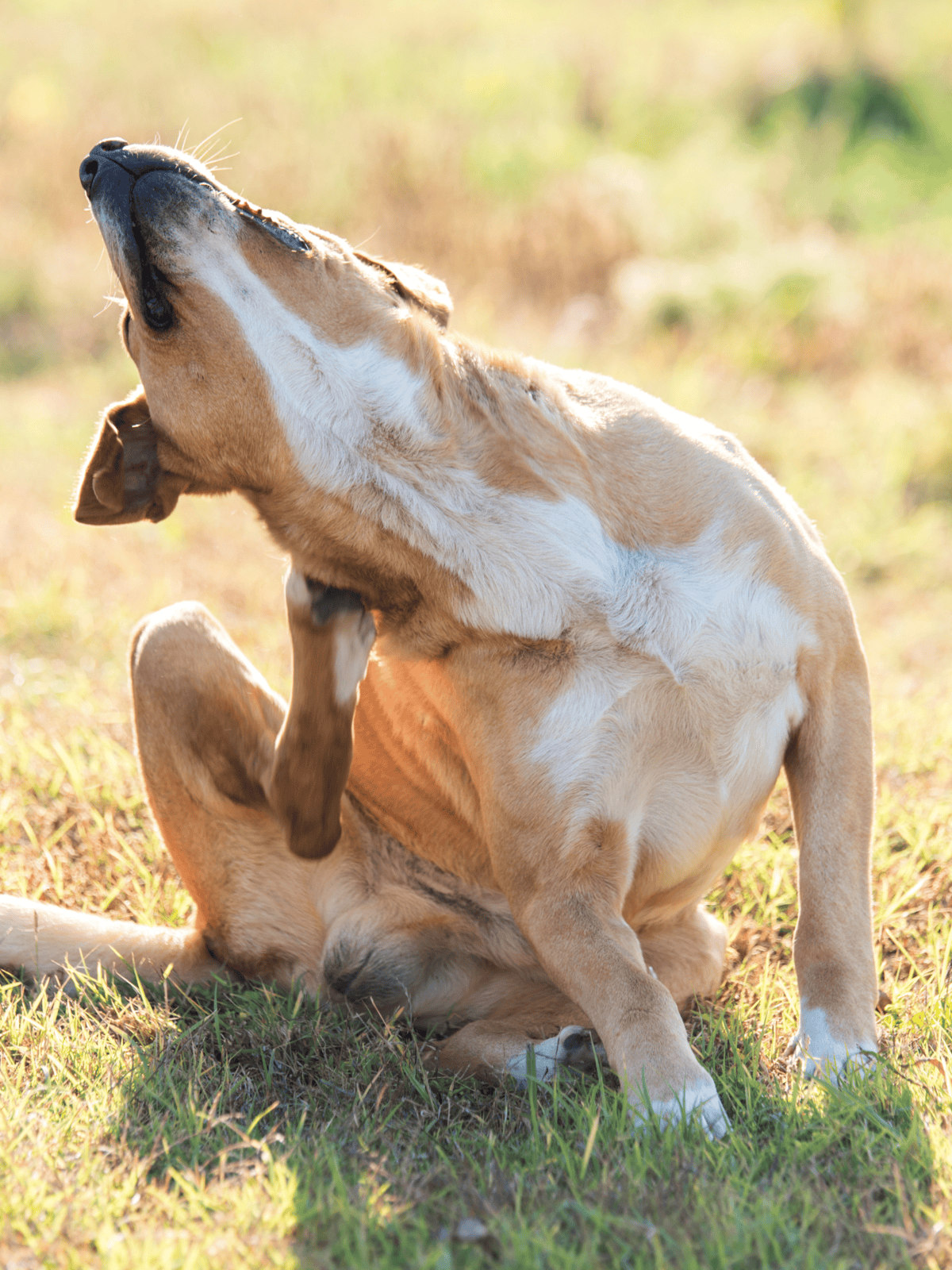
Food allergies can sometimes cause itchy skin in dogs. Common culprits are protein sources like chicken, beef, and pork. A diet with limited ingredients or a single protein source can be helpful. Trying a protein that your dog hasn’t eaten before might show positive results.
Consulting with a veterinarian is advisable if food allergies are suspected. They may suggest a prescription diet tailored to manage the condition effectively.
Environmental Allergen Management
Managing environmental allergens can significantly help in alleviating your dog’s itchy skin. Focusing on reducing indoor allergens and preventing outdoor exposure can make a big difference.
Reducing Indoor Allergens
Keeping the house clean is essential. Vacuum carpeted areas at least twice a week using a vacuum with a HEPA filter. This helps remove dust mites and pet dander. Wash your dog’s bedding weekly in hot water to kill any allergens.
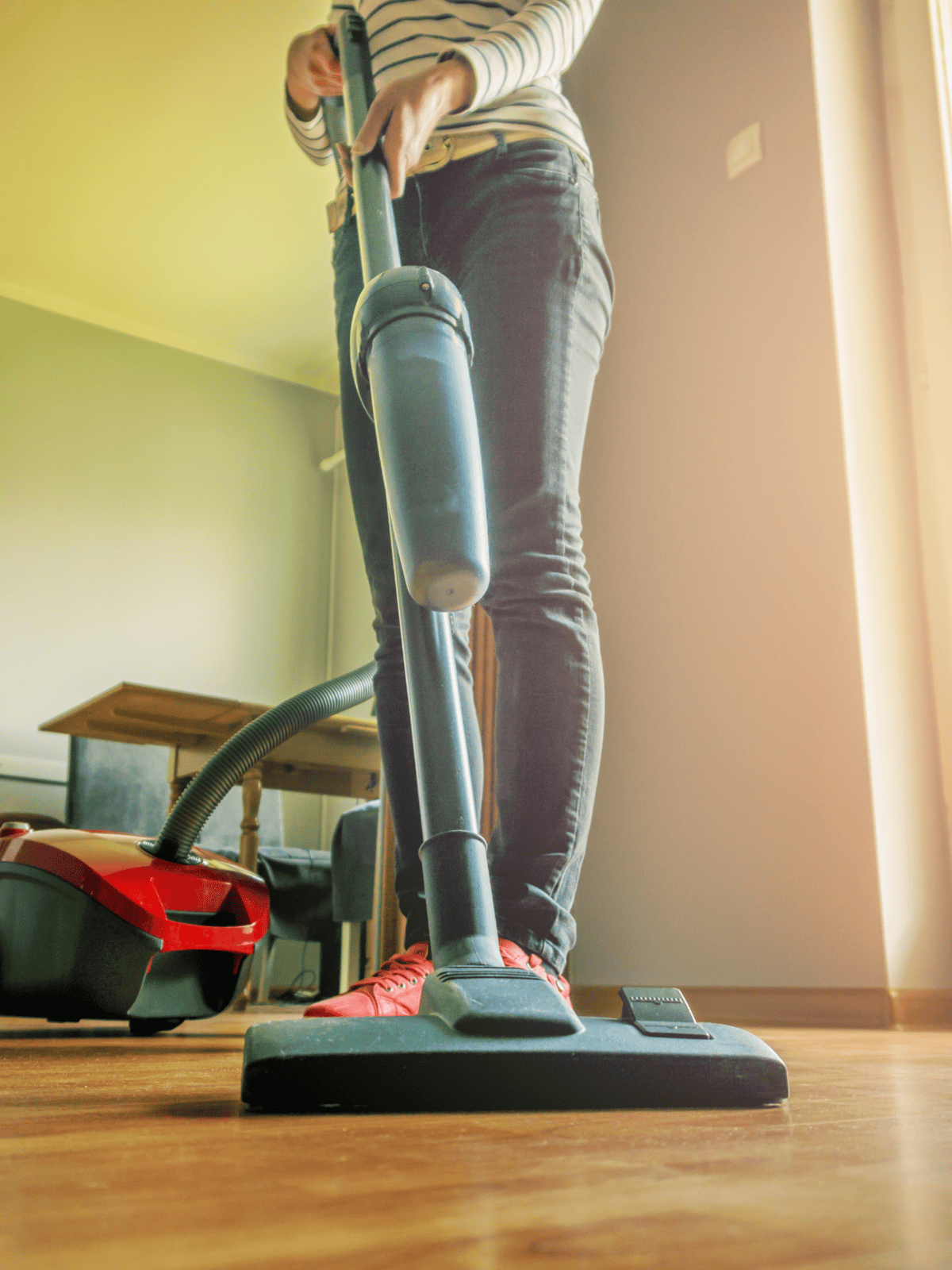
Use air purifiers in the rooms where your dog spends the most time. These devices can greatly reduce airborne allergens. Regularly replacing HVAC filters also contributes to cleaner indoor air.
Bathing your dog regularly, but not too frequently, helps remove allergens from their coat. Use a hypoallergenic shampoo to avoid irritating their skin. Limiting the number of stuffed toys your dog has can also help, as these can collect dust and dander over time.
Outdoor Allergy Prevention
When it comes to outdoor allergies, there are a few key steps you can take. Wipe your dog’s paws and coat with a damp cloth after they come inside. This simple action removes pollen and other outdoor allergens that can stick to their fur.

Avoid walking your dog during peak pollen times, typically early in the morning or late in the evening. Rinse your dog’s paws with water after walks to remove any lingering irritants.
Keep your lawn trimmed short and minimise the use of chemical fertilisers and pesticides. These can aggravate your dog’s skin further. Setting up a small, allergen-free zone in your yard, with no grass or plants, can provide a safe space for your dog to play.
Moisturizing Techniques
Keeping your dog’s skin moisturised can help relieve itching. Two effective methods include using a humidifier and hydrating sprays.
Humidifier Use
Using a humidifier in your home can add moisture to the air. This benefits dogs with itchy, dry skin. Place the humidifier in the room where your dog spends the most time. This can be especially helpful in winter when indoor air is drier.
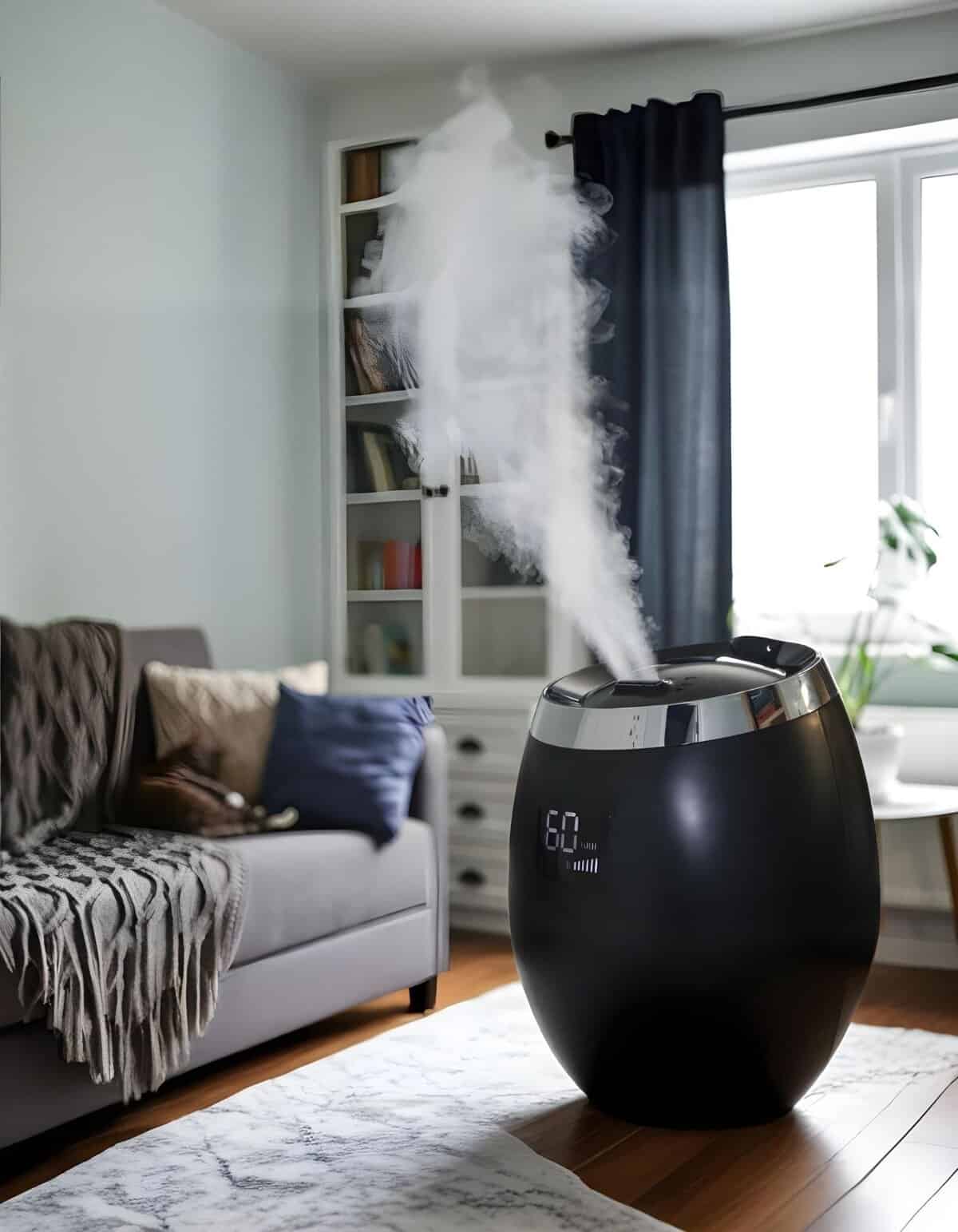
Monitor the humidity level using a hygrometer. Ideal indoor humidity for dogs is between 30% and 50%. Too much humidity can lead to mould and other issues, so balance is key.
Keep the humidifier clean to prevent bacteria and mould. Rinse the tank daily and follow manufacturer instructions for deep cleaning. This ensures your dog breathes clean, moist air.
Hydrating Sprays
Hydrating sprays can provide quick relief to dry, itchy skin. These sprays often contain ingredients like aloe vera, oatmeal, or coconut oil. Choose a spray specifically designed for dogs to avoid irritation.
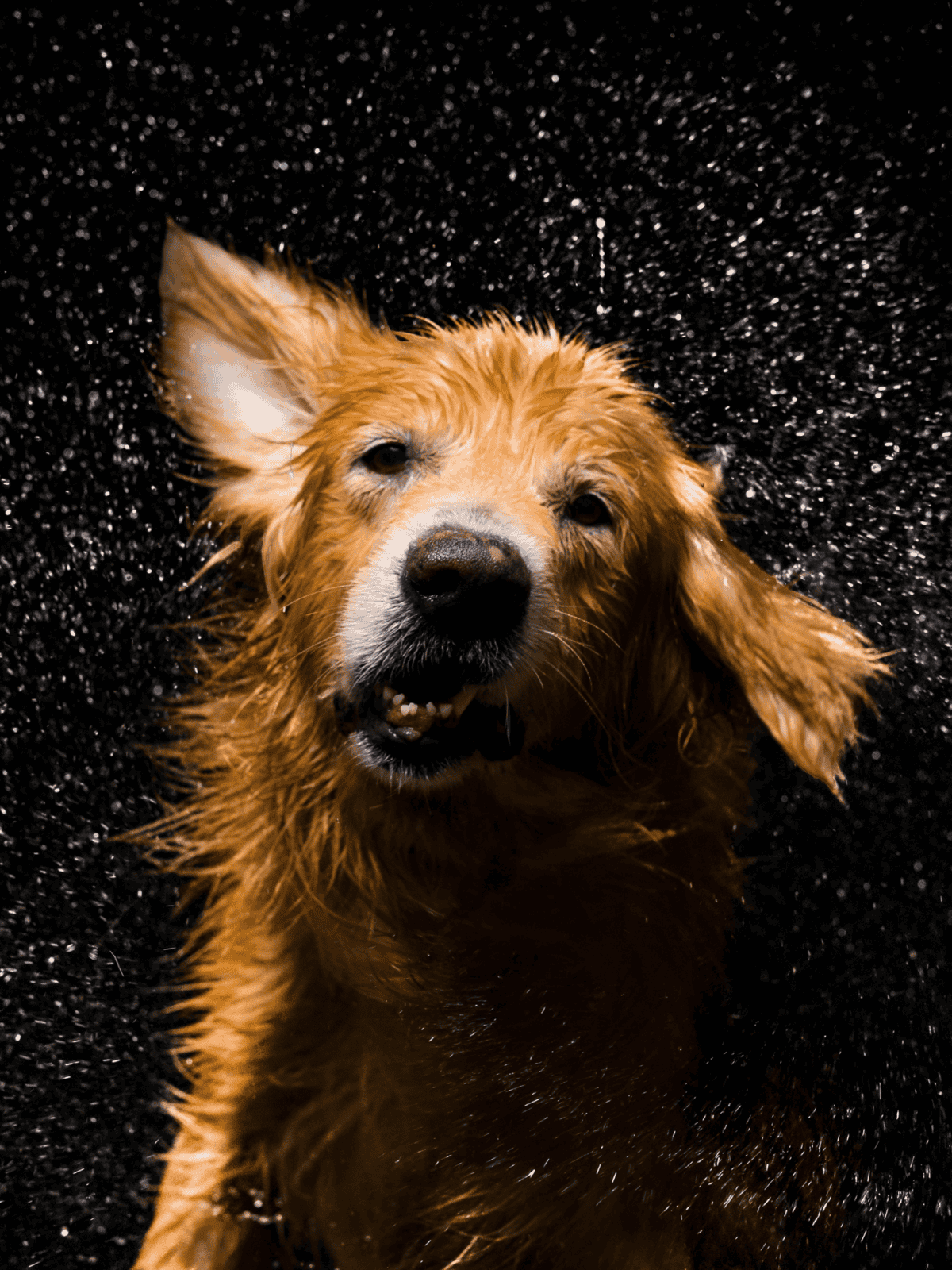
Apply the spray directly to your dog’s skin, focusing on dry or itchy areas. Massage it gently into the fur and skin to ensure even distribution. Most sprays are gentle enough for daily use.
Always check the label for instructions and ingredients. Avoid sprays with artificial fragrances or harsh chemicals. Consult your vet if your dog has sensitive skin or other conditions.
When To Call the Vet About Itchy Skin on a Dog
If your dog’s skin is red, scabby, smelly, or painful, it’s time to see the vet. These signs could mean there’s a bacterial or yeast infection, which might need antibiotics or antifungals.

For dogs with severe itching, systemic medications can help. Steroids are options the vet might prescribe. These medications help reduce inflammation and let the skin heal.
Normal home remedies often work better for prevention. Once there are visible signs of trouble, professional help is necessary. Ignoring these signs can lead to more serious issues. Always make an appointment if there’s a significant change in your dog’s skin condition.
